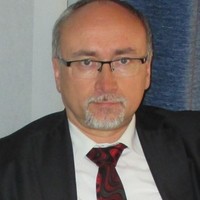
Michiel van Meeteren
The ongoing motive in my research is that I am fascinated how the increasing interconnections and interactions between people around the world, which is a hallmark of our era, are changing that very world we all live in; for better or for worse. Whether we talk about migration, transnationalizing companies, the interconnectedness of the financial crisis or new technologies: all have a profound impact on the human project. And figuring out the ways in which these interconnect is central to my own research endeavor.
I appreciate the ‘inductive’ nature of human geography as a starting point of this bigger-than-life research project. By, often literally, mapping what is happening ‘on the ground’ we create a strong anchor that reminds us that theory is there to explain events in the world and not the other way around. At the same time, how we make sense of these observations is paramount, and therefore theory is indispensable. Apart from the theoretical apparatus within the core discipline of human geography, I am indebted to fields such as: Political Economy, Organizational Sociology, Heterodox Economics, Symbolic Interactionism, and Science and Technology Studies and Social Network Analysis all inform my work.
My PhD research is embedded in the policy center for the Flemish Ministry of Spatial Planning (Steunpunt Ruimte). The main research topic regards the potentialities and the role of the Flemish polycentric urban structure for economic development. More specifically this implies that I try to disentangle both empirically and theoretically the complex and interwoven settlement geography of the Flemish region. This has led me to (re)consider various theoretical angles in urban and economic geography such as ‘Urban Systems Theory, Central Place theory, Various Growth Pole theories and the like.
I appreciate the ‘inductive’ nature of human geography as a starting point of this bigger-than-life research project. By, often literally, mapping what is happening ‘on the ground’ we create a strong anchor that reminds us that theory is there to explain events in the world and not the other way around. At the same time, how we make sense of these observations is paramount, and therefore theory is indispensable. Apart from the theoretical apparatus within the core discipline of human geography, I am indebted to fields such as: Political Economy, Organizational Sociology, Heterodox Economics, Symbolic Interactionism, and Science and Technology Studies and Social Network Analysis all inform my work.
My PhD research is embedded in the policy center for the Flemish Ministry of Spatial Planning (Steunpunt Ruimte). The main research topic regards the potentialities and the role of the Flemish polycentric urban structure for economic development. More specifically this implies that I try to disentangle both empirically and theoretically the complex and interwoven settlement geography of the Flemish region. This has led me to (re)consider various theoretical angles in urban and economic geography such as ‘Urban Systems Theory, Central Place theory, Various Growth Pole theories and the like.
less
Related Authors
Vera Chouinard
McMaster University
Paloma Puente Lozano
Universidad Carlos III de Madrid
Rob Kitchin
National University of Ireland, Maynooth
Federico Ferretti
Università di Bologna
Priyank Patel
Presidency University, Kolkata
Grace Healy
UCL Institute of Education
Henrik Gutzon Larsen
Lund University
Derek Gregory
University of British Columbia
René Matlovič
Slovak Academy of Sciences
InterestsView All (41)









Uploads
Papers by Michiel van Meeteren
http://techtv.mit.edu/videos/4524-session-iii-mapping-communities-in-large-virtual-social-networks
‘From Polycentricity to a Renovated Urban Systems Theory: Explaining Belgian Settlement Geographies’ proposes a conceptual framework to make sense of the Belgian urban system. This framework draws upon ‘renovated’ theoretical perspectives developed in the mid 20th century spatial science era of human geography, such as central place theory, the theory of cumulative causation and time geography. Based on these perspectives, a multi-system framework is proposed that can speak to contemporary debates while retaining theoretical continuity with the past. This is corroborated by several concrete studies that situate contemporary Belgian settlement geographies historically and functionally. It is concluded that, by critically engaging with contemporary social and economic issues, old-fashioned geography can still play a productive role today.